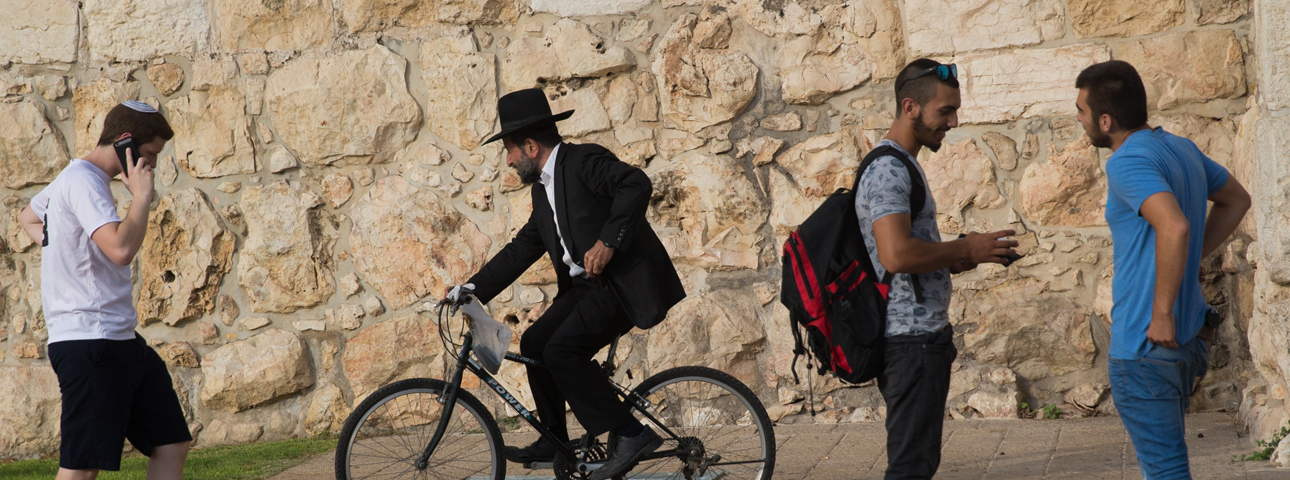New IDI Survey: 46% of Religious Israelis Support a Change to the Religious Status Quo
In light of the recent crisis surrounding the balance of religion and state in Israel, a special survey conducted by the Israel Democracy Institute (IDI) shows that 70% of secular Israelis believe that in recent years life in the public sphere has tended to favor the ultra-Orthodox and religious; over one-third of religious Israelis and 80% of people who define themselves as not religious but traditional either support the separation of religion from state or reducing religious influence on life in Israel.

A new poll by the Israel Democracy Institute's Guttman Center for Public Opinion and Policy Research found that half of the Jewish public in Israel believes that life in the public sector has become more religious in recent years. Meanwhile, 20% maintain that the change during this period has tended toward greater secularism. Based on respondents' level of religiosity, the survey revealed that 70% of the secular respondents believe that life in the public sphere is more religious, while only 25% of the religious and 22% of the ultra-Orthodox agree with this assessment.
Believe that in recent years the public sphere has become more religious:
The survey also found that a majority of Israeli Jews (57%) believes that current religion and state arrangements reflect haredi or religious values, while 18% think that they represent the values of the traditional (masorati) sector. Some 12% hold that the arrangements reflect the secular sector's values.
Breaking the numbers down by respondents' own level of religiosity, IDI's survey found that two-thirds of secular respondents believe that the current arrangements reflect ultra-Orthodox or religious values. On the other hand, 40% of haredim believe that arrangements reflect secular values. Moreover, 17% of the haredim surveyed maintain that the arrangements reflect only traditional values.
Finally, the survey found that 56% of Israelis favor a change in religion and state arrangements in Israel. Among secular respondents, 64% support this proposition, while approximately half of traditional and traditional-religious agree.
Among the religious, 46% support a change to the status quo, while only 42% of haredi respondents support any new arrangement. However, among supporters of change, IDI's survey found that while nearly 100% of secular Israelis support the separation of religion and state or reducing the influence of religion on life in the country, 76% of the ultra-Orthodox community would like religion to play a greater role on Israeli life. A surprising finding was found among the religious supporters of change, with more than a third of respondents indicating that they support the separation of religion and state or reducing its influence on life in the country. Among traditional-religious Jews, 49% support separating or reducing the influence of religion and among traditional non-religious respondents, 80% are in favor.
Dr. Shuki Friedman, Director of IDI's Center for Religion, Nation and State, said in response to the survey: "The secular population feels that religion is more dominant in the country than the reality dictated on the ground. In fact, the reality is complex and, in many cases, actually tends toward greater secularism. Rather, this feeling is based on the aggressive behavior of religious leaders and the religious establishment."
Friedman continued, "The findings emphasize the need to regulate relations between religion and state in a way that is most appropriate for Israel today. By doing so, we will be able to ensure Israel continues as a Jewish and democratic state, and not an ultra-Orthodox and democratic state."
The survey was conducted by Guttman Center for Public Opinion and Policy Research at the Israel Democracy Institute between June 27 and 28, 2017, among a sample of 500 Jewish Israelis.
